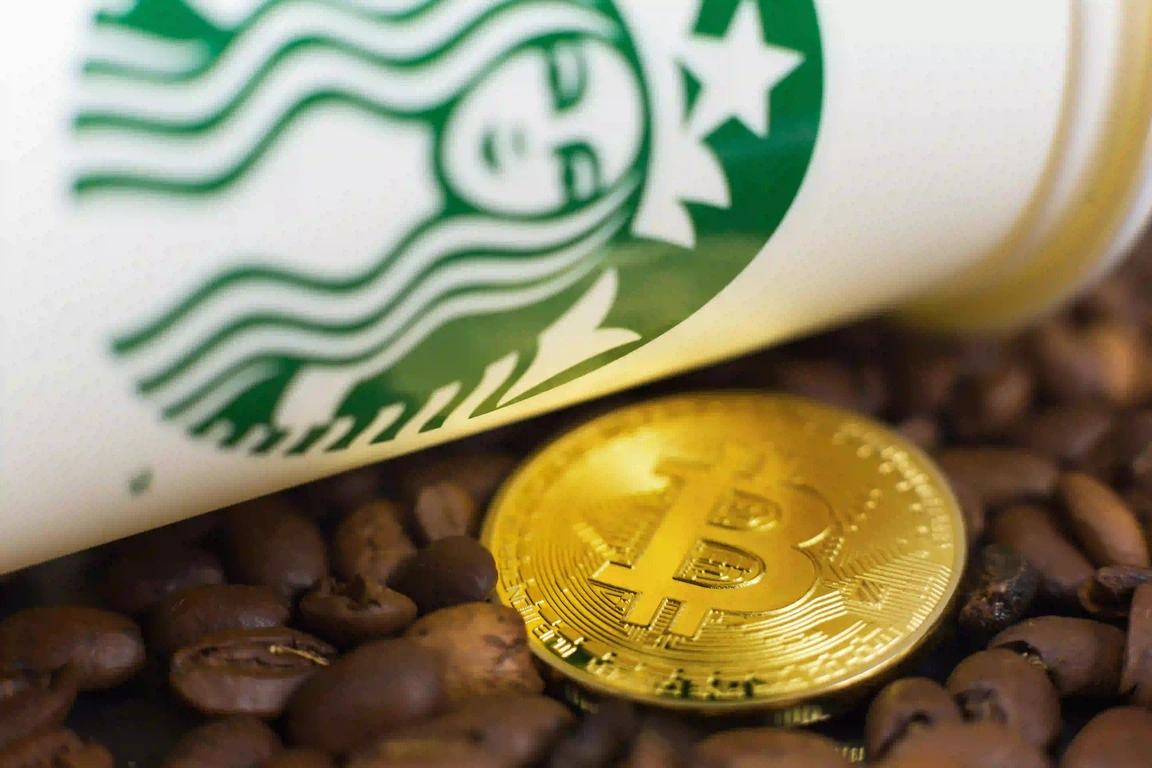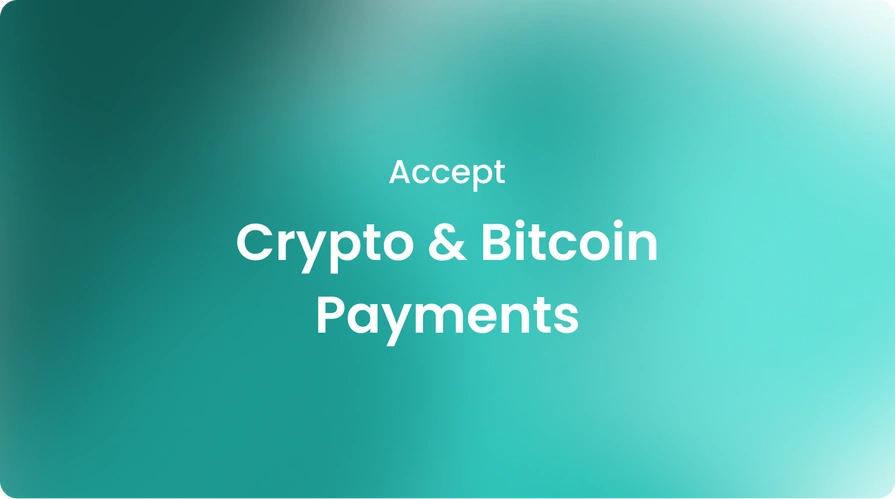In a world where technological advances are changing the way we do business, one new trend is taking the spotlight: the ability to accept crypto & Bitcoin payments.
As digital currencies keep growing in popularity and changing the way money works, businesses have a unique chance to step into the future of business.
Businesses and individuals can now do almost all their transactions over a crypto network or with cryptocurrencies such as Bitcoin. This may involve a product or service as well as a transfer.
Start to accept crypto & Bitcoin payments as it's a game-changing strategy that can change the way customers do business, open the door to new markets, and put businesses at the forefront of financial innovation.
Join us in this blog as we discuss the Bitcoin payment system, the differences between crypto and blockchain, and ways to accept these cutting-edge payment methods.
What is the Bitcoin payment system?
Cryptocurrencies are virtual currencies that are created via a structure called a cryptography-based blockchain.
They allow people to send money to one another easily and securely and lack any physical assets or centralised control. Bitcoin is the most traded and first cryptocurrency today.
The Bitcoin payment system is a decentralized network of digital assets that lets people trade money directly with each other.
It operates on a blockchain and uses cryptography to make transfers and the creation of units safer. This safe, open, and quick way for cross-border payments is an alternative to standard methods that use fiat currency.
Today, besides the rapid development of technology, the methods used in money transfers have remained inadequate and costly. Me
thods such as EFT and SWIFT cause delays and high costs when transferring money.
The circulation of money as cash is quite low. Businesses and individuals make their transactions electronically with credit cards or via internet banking. At this point, the essence of the transaction is a change of numbers rather than a change of money.
It is a well-known fact that today, if everyone wants to get their money from the bank in cash, there is not enough cash in circulation.
Additionally, when conducting traditional online transactions using payment methods like credit cards or PayPal, it is necessary to use third-party services in the event that the buyer returns his or her money.
All of these circumstances point people and businesses toward a technology that makes it possible to change their assets very quick
ly, transparently, and in a way that everyone can see, without the need for a central authority, on the basis of blockchain technology.
At this stage, systems such as Bitcoin has become more popular due to their effective, safe, and easy features thanks to blockchain technology.
From the buyer's perspective, transactions such as making payments and transferring funds between accounts are becoming safer and cheaper.
Because Bitcoin technology works directly with peer-to-peer (P2P) systems, in other words, without any intermediaries, makes Bitcoin more attractive to use as a payment method.

What are the differences between crypto and blockchain?
Rapidly developing technology adds many innovations to human life. These innovations that join human life are rapidly becoming concepts that are spoken of and used in people's daily spaces.
All these developments in technology have also caused a change in trade and the concept of money. Electronic money and crypto money concepts have been on the agenda recently. In this sense, the concept of virtual money consists of bitcoin and alternative money systems.
This new system, which is defined as electronic money, or even crypto money, is a new system created in the electronic environment and defined as a cash-like payment tool.
The virtual currency includes the mining process called mining, the digital wallet process related to the preservation of the money, the financial issues, and the companies and their structures that deal with all these processes.
Since many virtual money concepts, especially blockchain and bitcoin, have come into our lives rapidly, it is very important to define, associate, and compare these concepts with each other.
A blockchain is a distributed ledger with expanding lists of records linked by cryptographic hashes.The blockchain got its name because it is an ever-growing list of records called blocks. Blockchain is a distributed peer-to-peer database with strict rules for adding data.
A cryptocurrency is a type of digital currency. Examples include Bitcoin, EURK, Litecoin, and Tether. Cryptocurrencies are called coins or tokens.
The main difference is that cryptocurrency is a type of digital currency used for transactions and investments, while blockchain is a more general technology that serves as a decentralised and secure ledger for different types of data and transactions, including but not limited to cryptocurrencies.
When crypto money and blockchain technology are examined, it is obvious that these two concepts offer some innovations in terms of finance and technology. It is predicted that the use of cryptocurrencies in financial transactions will increase over time.
How do I start a crypto wallet business?
In order to transfer crypto money, it is necessary to have addresses called the public keys of the sender and the receiver. Basically, the entire blockchain structure is based on public-key cryptography.
According to a particular system, the registry keeps track of the transactions with cryptocurrency amount information that these addresses transfer to one another.
Every address, that is, the public key, has a unique private key equivalent. Signatures with these private keys are used for cryptocurrency transactions.
Since privacy is in question, it is important and recommended to use more than one address, that is, key pairs, in crypto money transfers. Wallets provide the management and storage of these keys.

Basically, wallet services are divided into two categories: online and offline. Online wallets have internet access. Offline wallets, on the other hand, do not have direct internet access and are more secure.
First of all, you can start a crypto wallet business after examining all these concepts and differences. So how should you proceed?
First, you need to make sure your licensing requirements are met, and you'll need to work with a legal counsel or consulting organization.
You then need to secure funding to complete our venture. For additional liquidity, you need to implement different options. Also provide security practices. You can provide all this with Cryptobunq consulting support.
How to accept crypto & Bitcoin payments as a small company?
As a small business, if you want to make your transactions open to crypto and Bitcoin payments, you need to follow some paths and recommendations.
First of all, you need to know the legal regulations in your country or region. For this, you can contact a legal consultancy or specialist institutions.
Then set up a gateway or crypto wallet for transactions. Enable payments with Bitcoin for payment transactions. And provide software integration of accounting processes for Bitcoin.
In this way, you can start using Bitcoin as a payment tool for your business. As Cryptobunq, a one-stop shop crypto service provider, we offer blockchain solutions for your business.
If you want to learn more about how to accept crypto & bitcoin payments, contact us. We are here to help you with all your questions. Benefit from our wide range of services, such as tokenization, digital wallets, node as a service, and more, to experience the future of money!














